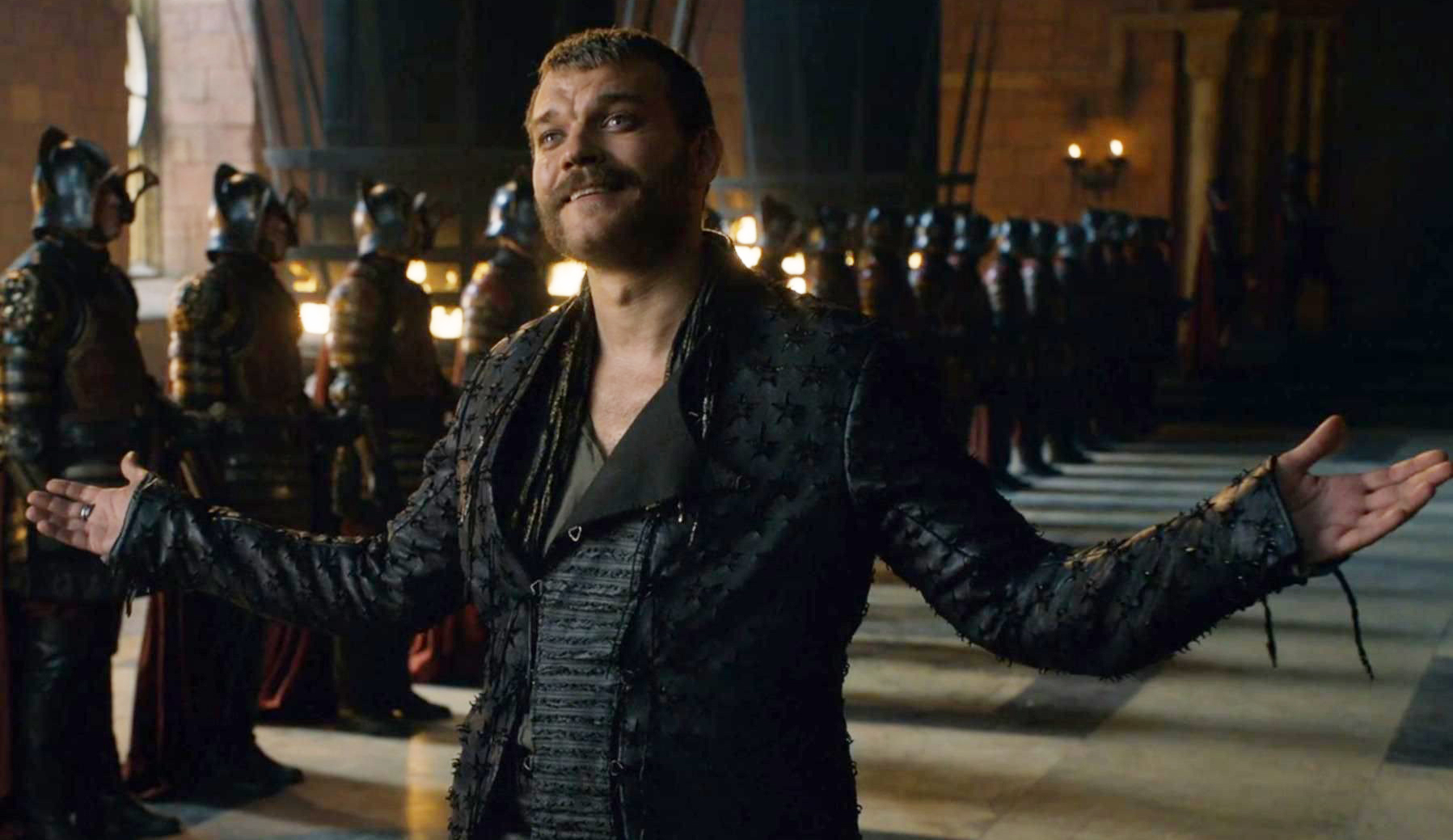"That was disappointing for me" - two seasons on, and Ian McElhinney is still sad about the death of Ser Barristan in Game of Thrones
The actor who played one of Westeros' greatest knights speaks about his disappointing death
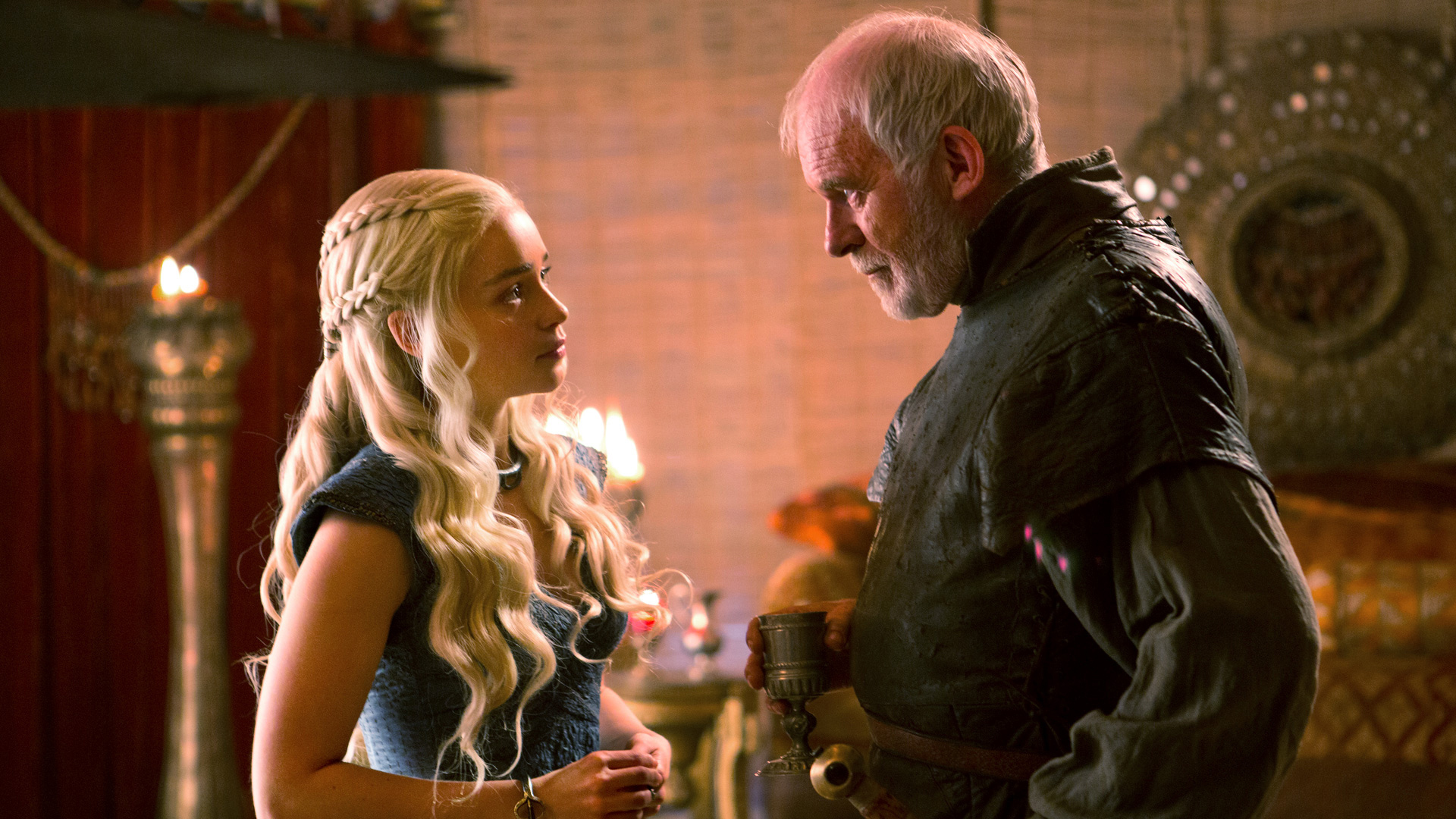
Of the many savage deaths Game of Thrones has inflicted on its viewers - and it’s specifically the viewers we’re talking about here, for reasons we’ll go into below - few felt as needless and spiteful as the death of Ser Barristan Selmy.
There have been others that were crueler, or that had a greater effect on the plot. But at the time, the loss of Barristan felt like the series had turned down a bleak and belligerent path. The seasons that followed, thankfully, have proven Game of Thrones needed to be free from the books to flourish as a show, and perhaps killing Ser Barristan was the first step towards independence. But I still can’t help but feel like Barristan deserved better, and that everything that followed, however good, has been poorer for his absence. I’m not the only one. GamesRadar+ recently interviewed Ian McElhinney, the actor who played Selmy, and he’s still unhappy about the character’s death.
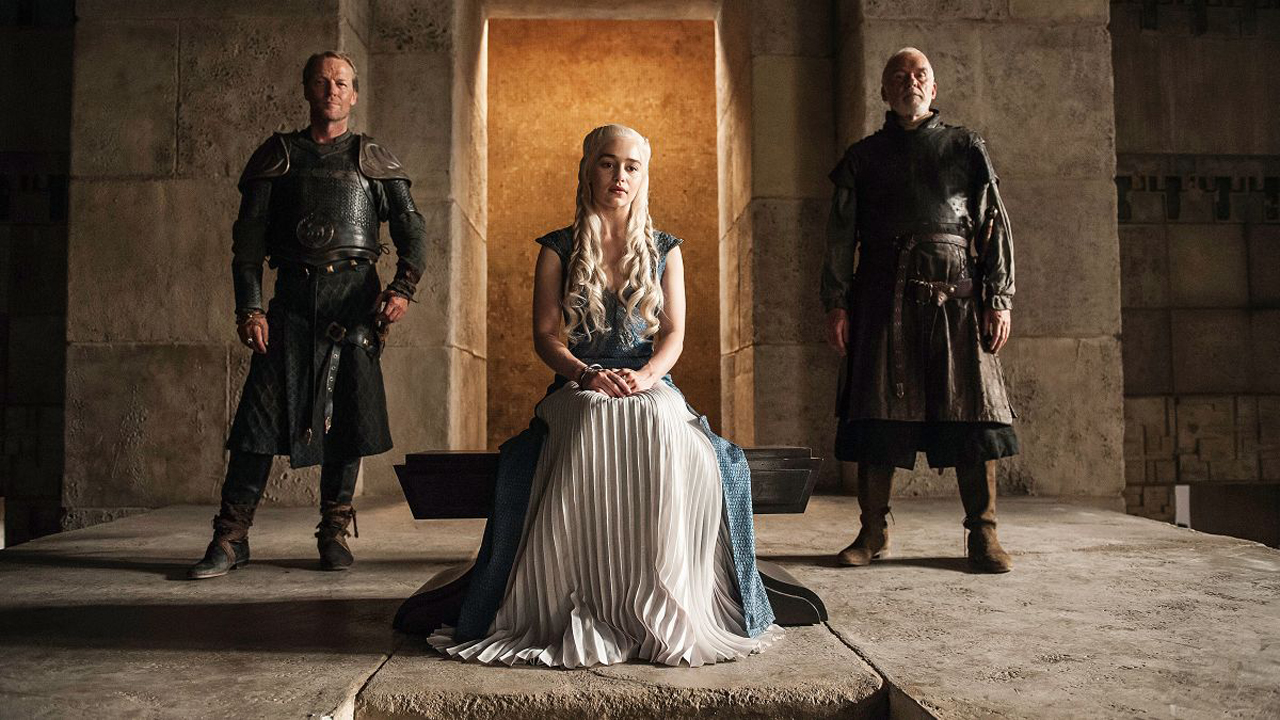
“I had rested on my laurels for four seasons, like he’s the greatest fighter in Westeros and that was the first time that you’d actually seen me fight. So to fight and die as a consequence was a bit disappointing,” says McElhinney. No kidding. It was the manner of his death that stung - a throwaway moment in a storyline that many had grown tired of. It was wearying, rather than insightful or exciting, doing very little to advance a plot that was already stalling. And while there’s an argument that there’s something poetic (and very George RR Martin) about one of Westeros’s greatest heroes dying in a grubby backstreet, I don’t buy it. Neither does McElhinney: “Some people said fantastic death, others said he deserved better,” he explains. “You know, rather than being killed by a bunch of Harpies in a back alley he should have been gloriously fighting in battle and probably had a few more victories left before his death.”
Is it worth still being angry about, though? After the incredible season 6, and a strong start to season 7, the show is in impressive health. Perhaps it’s mad to look back to the quite-honestly-duff season 5 and lament the poor choices that were made. But for anyone invested in the books, and especially Barristan’s story arc and the way he was introduced to Daenerys, it does feel like we were robbed of a more nuanced resolution. McElhinney agrees. “On another level I’d unfortunately read the books. I knew Barristan had a different story in the books and I was hoping for a bit more of Barristan alive before he met his comeuppance… well, comeuppance is unfair, he didn’t deserve a comeuppance. Before he met his death. That was disappointing for me.“ Being cynical, it feels like the show was experiencing middle-aged spread, with too many characters in too many locations, and McElhinney was one of the unlucky ones to get cut. It’s a grubby way of handling a talismanic character, and it feels like there were many smarter ways it could have been done.
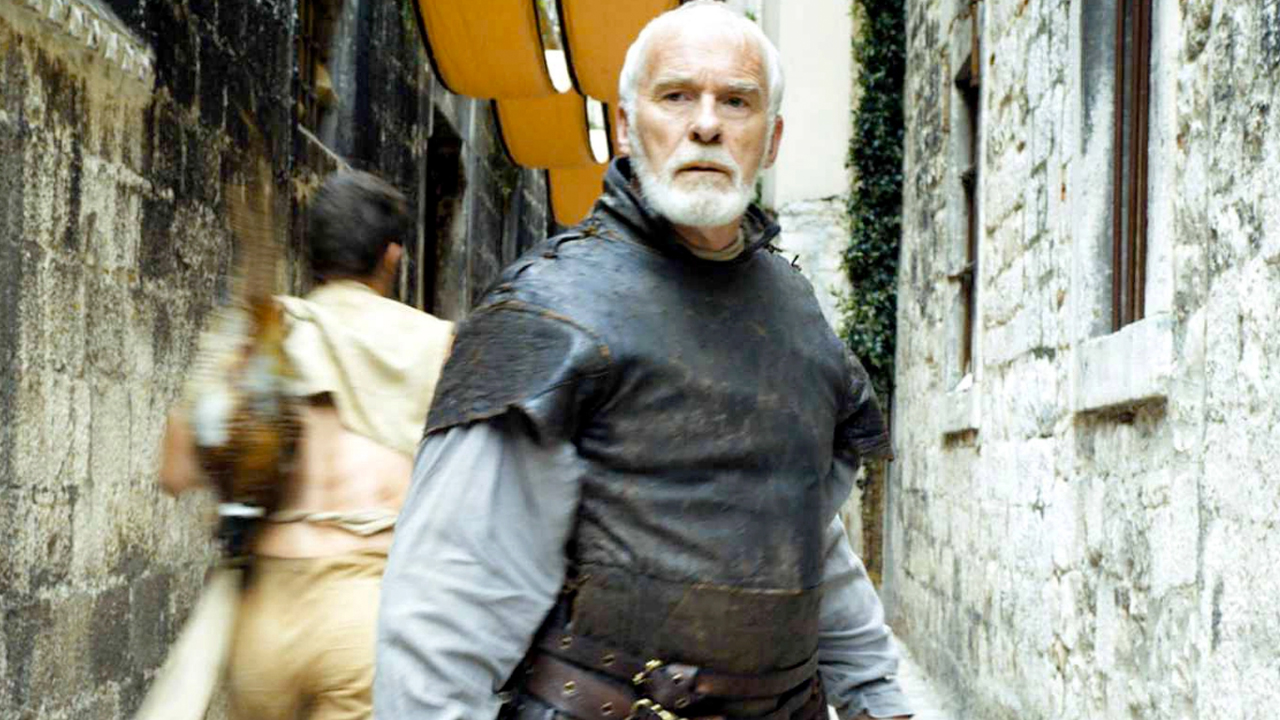
As McElhinney explains, Barristan was unlike anyone else: “I think he took great pride in what he did. He understood properly what it meant to be a member of the Kingsguard and followed it through to the letter. And I’m not sure that everybody could say that.” There’s something reassuring about a character like Selmy, especially in a world when anyone feels like they could turn. Even the closest family ties, such as those of Sansa Stark and Jon Snow, sometime feel under strain. As viewers, we’ve been trained to expect deceit, and watching someone like Selmy do the right thing felt like taking a holiday from all the backstabbing. His sudden departure is worse when you realise that Selmy escaped King’s Landing when it was at its most wretched, under the rule of Joffrey. “Whilst he was completely committed to being a member of the King or the Queensguard, unfortunately [Joffrey] was never the appropriate one”, says McElhinney. “To go and serve Daenerys Targaryen and actually be a Queensguard to somebody who was deserving of that support was of great satisfaction to him because he’d been unfortunate in that respect prior to that.”
If the implication is that Barristan represented a different time or mentality, slowly slipping into the history of Westeros, there are many more elegant ways this could have been handled. He died in a literal and figurative dead end. Nothing came of his assassination that significantly altered the course of the story: The Sons of the Harpy would still have fought Daenerys, and ultimately, have been defeated. This is why I’m still sad that Selmy is gone, and why I don’t feel bad about banging on about it two seasons later. As we rush to the conclusion of the story, it still feels like there’s something missing.
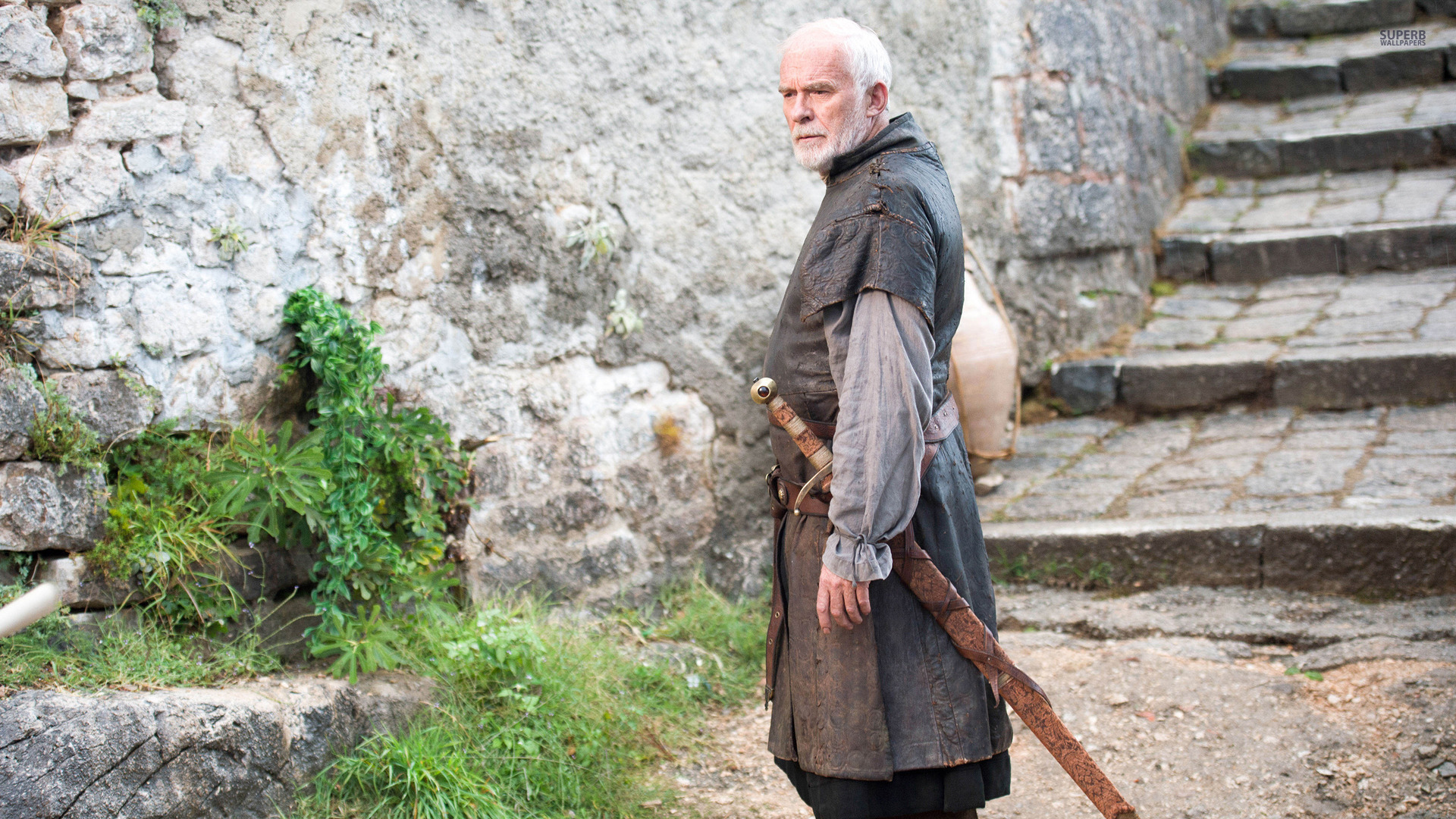
Barristan was a character who embodied the richness and depth of the world, who gave meaning to those around him because he was so revered. The books go to great lengths to establish him as one of the greatest knights in the history of Westeros. The show, too, talked a lot about how capable he was - Ned Stark, Jaime Lannister, and Jorah Mormont all mention his skills as a fighter. We’ve been robbed of the chance to see him return to Westeros with a ruler worthy of his support, but also the chance to see him in him in battle. Worst of all, it feels like an oversight, made more preposterous when you realise the show even went back in time to show us the skills of Ser Arthur Dayne, who was apparently Selmy’s equal (Dayne had the edge when using his ancestral greatsword, Dawn). It’s sad and strange to be approaching the final seasons of the show never having never really seen Barristan the Bold in action. His ignominious death doesn’t mean his legend has faded, but the show is certainly poorer without him.
Sign up for the Total Film Newsletter
Bringing all the latest movie news, features, and reviews to your inbox
Game of Thrones Season 7 is available via Digital Download now.
